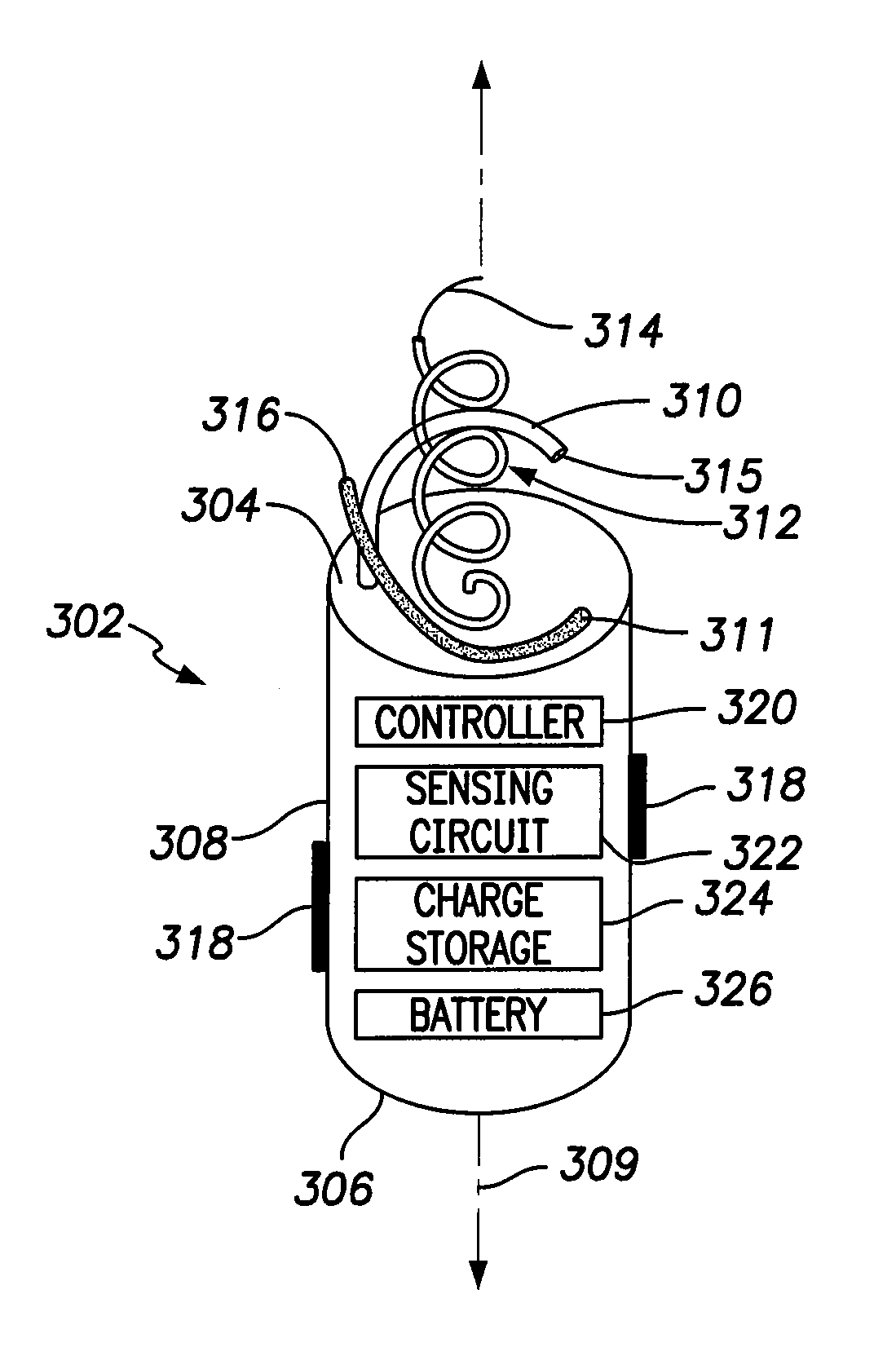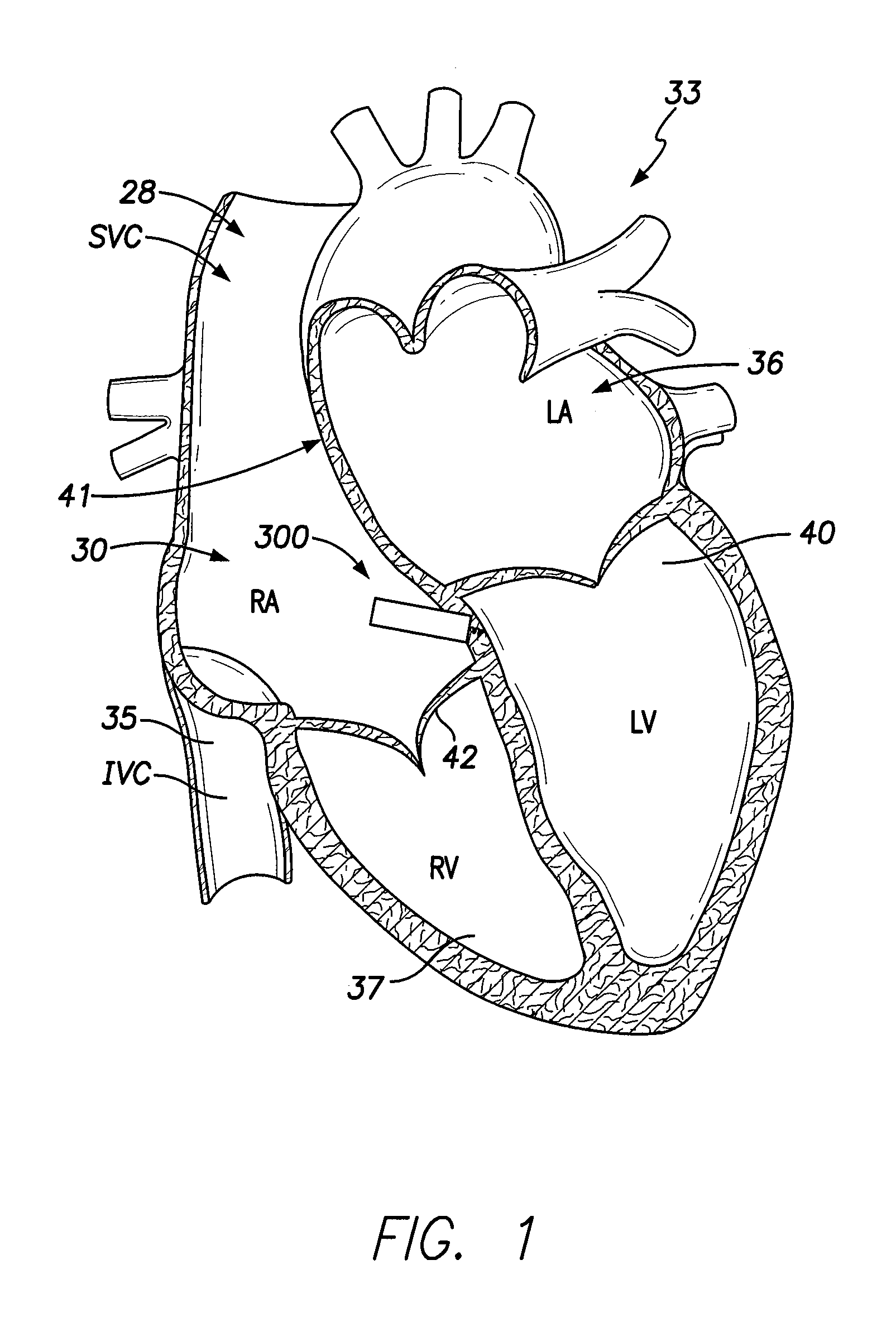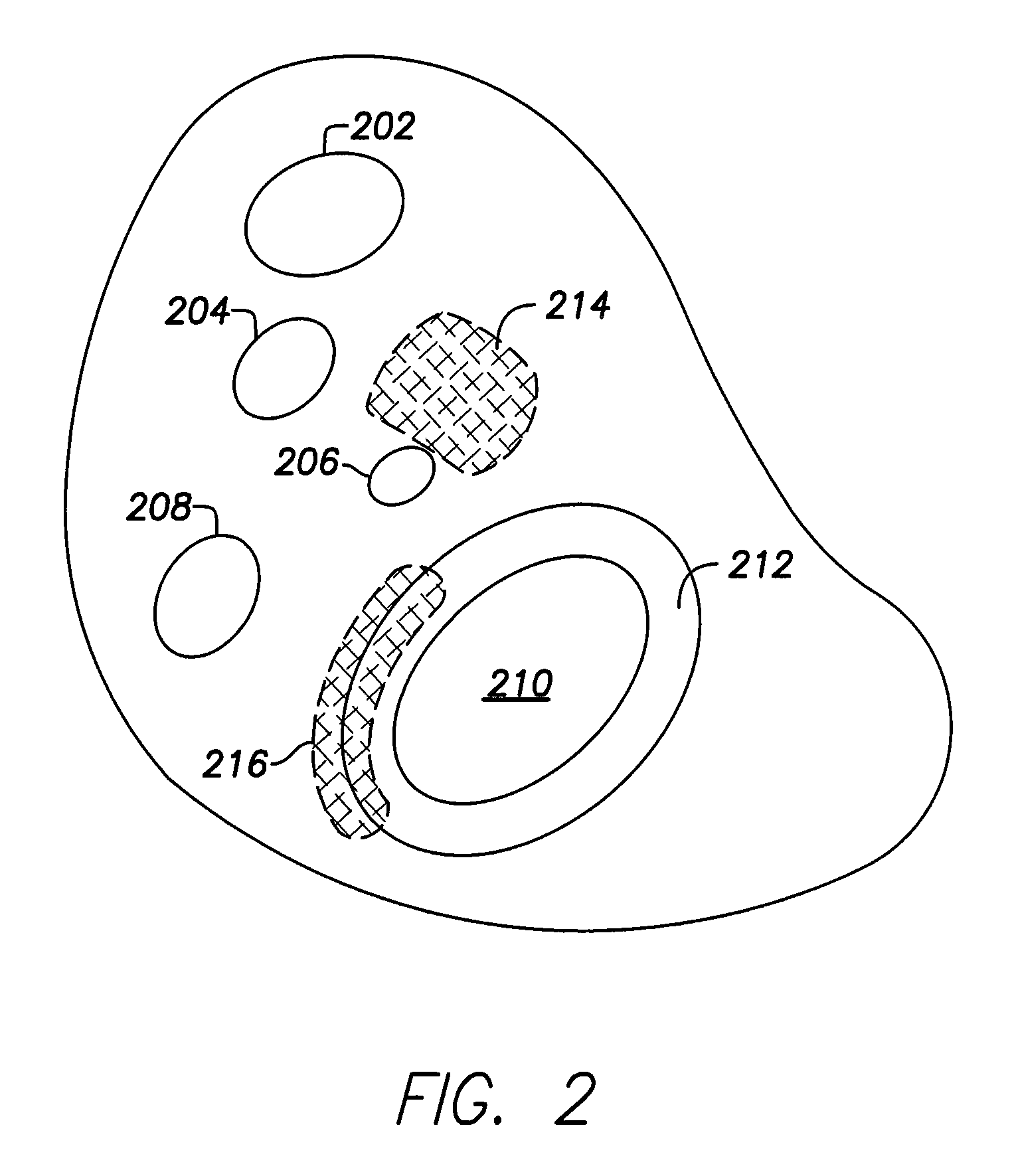Single chamber leadless intra-cardiac medical device with dual-chamber functionality
a medical device and dual-chamber technology, applied in the field of implantable medical devices, can solve the problems of increasing the risk of infection within the heart, device malfunction, patient's twiddler's syndrome,
- Summary
- Abstract
- Description
- Claims
- Application Information
AI Technical Summary
Benefits of technology
Problems solved by technology
Method used
Image
Examples
Embodiment Construction
[0055]Dual-chamber permanent pacemakers (PPM) operating in the DDD or DDDR mode, are indicated for patients with complete atrioventricular (AV) block, sick sinus syndrome, and paroxysmal AV block. The use of DDD or DDDR mode PPMs in patients with a high degree of AV block is shown to improve subjective metrics of patient life and increase peak velocity and cardiac output, compared to VVIR PPMs. Additionally, another study demonstrates reduced incidence of atrial fibrillation (AF) and increased patient longevity in patients with sick sinus syndrome after the time of DDDR PPM implant. These significant benefits, accrued to the three previously-described subgroups of implant patients, provide a strong impetus for using DDDR PPMs in those recipients.
[0056]The benefits of conventional DDD or DDDR PPMs are counterbalanced by the increased risk of complications with the additional lead necessary for these PPMs (compared to single-chamber devices). A preferred solution to this dilemma as of...
PUM
 Login to View More
Login to View More Abstract
Description
Claims
Application Information
 Login to View More
Login to View More - R&D
- Intellectual Property
- Life Sciences
- Materials
- Tech Scout
- Unparalleled Data Quality
- Higher Quality Content
- 60% Fewer Hallucinations
Browse by: Latest US Patents, China's latest patents, Technical Efficacy Thesaurus, Application Domain, Technology Topic, Popular Technical Reports.
© 2025 PatSnap. All rights reserved.Legal|Privacy policy|Modern Slavery Act Transparency Statement|Sitemap|About US| Contact US: help@patsnap.com



